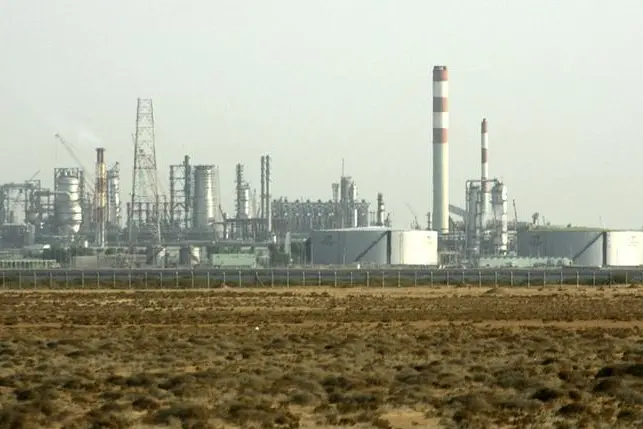PHOTO
By Florence Tan and Jane Chung
SINGAPORE/SEOUL, Feb 9 (Reuters) - Three North Asian refiners plan to trim light crude loadings from Saudi Arabia in March because of uncompetitive prices against similar-quality oil such as Abu Dhabi's Murban and North Sea's Forties, officials from the companies told Reuters.
The plans to reduce their purchases come after two straight months of price hikes made the Saudi Arab Light and Arab Extra Light crude more expensive than similar grades from Abu Dhabi and the Atlantic Basin.
Saudi light crude prices rose too much, given still abundant supplies in the market, a senior official with one of the North Asian refiners said.
The Organization of the Petroleum Exporting Countries (OPEC) and some non-OPEC producers agreed in December for the first time since 2001 to reduce output to support prices.
Top world oil exporter Saudi Arabia, however, has maintained steady supplies to most of its Asian customers to protect market share despite shouldering the biggest portion of production cuts among OPEC members since January.
Saudi Arabia has also been raising its official selling prices (OSPs) at the same time, by as much as 60 cents for its February light crudes and up to $1 for March.
The Saudis are "too optimistic about the supply cut and keep raising their OSPs. It's clear that oversupply is still happening," said the senior official who declined to be named due to company policy.
Saudi Aramco did not respond to an emailed request for comment.
The supply cuts agreed to in December have also mainly come in high-sulphur oil, boosting Middle East crude prices against other regions and prompting traders to pull in crude from Europe, Africa and record volumes from North America.
Among the three North Asian refiners, two said they were trimming Arab Extra Light purchases and one said it was trimming Arab Light.
Straight comparison of prices are difficult because some sellers, such as the Abu Dhabi National Oil Co
The amount of substitutions that can be made are also limited, because of the Asian term buyers' contract obligations.
Refiners can only cut term supplies by a maximum of 10 percent, using operational tolerance, a contract stipulation that allows either the buyer or seller to adjust volumes according to shipping arrangement.
On Wednesday, state oil giant Saudi Aramco informed customers in Asia that they will receive full contract volumes in March. Buyers will be able to use the operational tolerance option to trim loading from there.
Despite the prices hikes, Japan is expected to keep imports from Saudi Arabia steady in March, industry sources said, as they will not be lifting any Iranian oil that month until the government extends shipping insurance. (Reporting by Florence Tan in SINGAPORE and Jane Chung in SEOUL; Additional reporting by Osamu Tsukimori in TOKYO and Mark Tay in SINGAPORE; Editing by Tom Hogue) ((Florence.Tan@thomsonreuters.com; +65 6870 3497; Reuters Messaging: florence.tan.thomsonreuters.com@reuters.net))





















